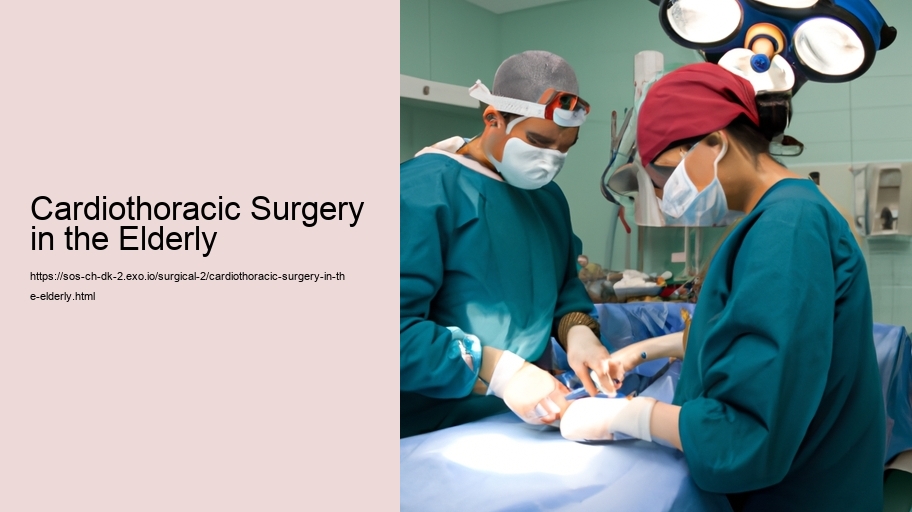Cardiothoracic Surgery in the Elderly: Navigating the Complexities of Age and Healing
The realm of cardiothoracic surgery has long been viewed as a pinnacle of medical intervention, a field where the delicate balance between risk and reward is most palpable. As the geriatric population burgeons, a growing number of elderly patients find themselves at the crossroads of advanced age and the need for intricate surgical interventions to treat heart and lung conditions. The decision to pursue cardiothoric surgery in the elderly is one that warrants a nuanced understanding of the unique challenges and considerations inherent to this age group.
The aging process brings about a myriad of physiological changes that can complicate surgery and recovery. Diminished cardiac reserve, reduced pulmonary function, and a decline in organ system resilience are but a few of the obstacles that the elderly face when undergoing major surgery. Furthermore, the presence of coexisting conditions such as diabetes, hypertension, and osteoporosis, often accompanied by a cocktail of medications, adds layers of complexity to the preoperative assessment and management.
The ethical dimensions of cardiothoracic surgery in the elderly also deserve attention. Informed consent becomes a particularly weighty matter as the risks associated with surgery escalate with age. The concept of quality of life must be judiciously weighed against the potential for extended longevity. Discussions surrounding these surgeries are deeply personal and reflective, requiring a shared decision-making approach that respects the wishes, values, and goals of the patient.
Nevertheless, advancements in surgical techniques and perioperative care have significantly expanded the horizons for the elderly. Minimally invasive procedures, off-pump cardiac surgeries, and enhanced recovery protocols have all contributed to more favorable outcomes and have made surgery a viable option for many older individuals. These innovations, coupled with meticulous preoperative assessment and optimization, can lead to successful surgeries with meaningful improvements in symptoms and quality of life.
Postoperative care is another critical component in the success of cardiothoracic surgery in the elderly. Age-appropriate rehabilitation, vigilant monitoring for complications, and a multidisciplinary approach to support recovery can help mitigate the potential for post-surgical decline. The role of family and social support networks cannot be overstated, as they provide the necessary scaffolding for the patient to navigate the postoperative period.
Despite the challenges, there are countless stories of elderly individuals who have not only survived but thrived following cardiothoracic surgery. These are tales of resilience and modern medicine at its best, offering hope and extending lives. Each case is a testament to the patient's spirit, the skill of the surgical team, and the incredible progress of medical science.
In conclusion, cardiothoracic surgery in the elderly is a testament to the remarkable strides in medical knowledge and surgical skill. While the risks are undeniable, the potential for improved quality of life and longevity can make surgery a worthwhile consideration. It is incumbent upon healthcare providers to navigate these complex waters with empathy, expertise, and an unwavering commitment to patient-centered care. As we continue to refine our approaches and harness new technologies, the prospects for the elderly facing cardiothoracic surgery will only improve, enabling more individuals to lead fuller, healthier lives in their golden years.
